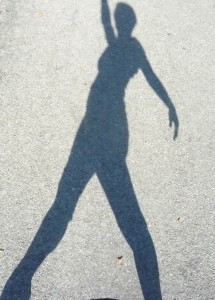It started Thanksgiving 2012. My parents-in-law’s best friend was dying; he died, too soon, shortly thereafter. My father was diagnosed with cancer on my birthday. My daughter had a mysterious hand infection that puffed her hand way out no matter what medication we gave her, and we wound up in the E.R. for overnight antibiotics, while one of my dear friends was in the hospital next door struggling for breath. She died a month later, way, way, way too soon. And that was only early January.
There were 3 more E.R. visits for my daughter. Two back surgeries and resulting recovery times before my father could get treatment for his cancer. Both are doing well now, but there was persistent worry in a corner of my mind all year.
There was complete lack of movement in getting my David and Saul novel closer to being published: no requests for a full manuscript from any agent I queried. None. No professional interest in the picture book project I’m working on with a friend. I was turned down for a job I would’ve been really good at. I didn’t get enough volunteers for a church thing, so had to scrap some plans that would’ve been good for the kids. I’ve never been rejected so many times for so many things in my life.
My children each had struggles where they haven’t before, some of which are ongoing. My husband’s heavy work schedule continues to wear us down. I’ve read maybe half the number of books I normally do; after my friend died, I just didn’t have the urge. Insomnia. Anxiety. As the year went on, my hermit tendencies have become even more entrenched.
But this has also been a great year.
When you’ve cried with people, and you’ve shared grief, you’re closer to them, so I’m closer to a lot more people than I was a year ago, even some I’ve known for a long time. We made some real friends at the new church. I’ve given some good encouragement to dear friends. I got through the Old Testament in my devotional reading (finally!) and done some good struggling with and resting in God’s promises. My faith is deeper than it was a year ago.
My children have had also triumphed, and I’ve gotten to stand up and cheer for them. My husband is doing really good work, both for pay and for fun — and he’s writing songs again! I’m taking a dance class again. A class for which I will get to perform in a recital (a phrase that makes me giggle).
The fine folks at One Faith Many Faces gave me paid work and thought enough of my writing here to want to rerun it on their site. I went to a small writer’s retreat, where I met some fine writers, reconnected with an old friend, and got some much-needed encouragement. There has been some other paid work, some guest posts on other blogs (on prayer and dance), and some wonderful conversations here. I am grateful for every person who’s read my writing — that means you. Thank you.
I’m grateful, but also deeply frustrated and sad, often about the same things. So I wrote something about Thanksgiving for my friends at One Faith Many Faces (they’re the ones who gave the post it’s awesome title) that I needed to hear — something all of us who are feeling both gratitude and grief this year.
Some years, you’re so full of gratitude that it seeps out of your pores and suffuses everything you do.
Other years, the idea of spouting words of gratitude seems so wrong as to almost feel offensive.
Sometimes, those are the same year.
A tough year can bring out your gratitude to God for being with you through it all – but lurking behind every item of thanksgiving is a great big but. The Psalmist knows what that’s like:
Please continue here to read the rest of Thanksgiving is a great big but.



